Your Story Is a Radical Act
Why personal storytelling matters—and how scrapbooking helps us take up space in a world that wants us small
I've been documenting my life in scrapbooks for more than 25 years now. Big scrapbooks, small notebooks, DIY albums, traditional supplies, and mixed media—this is my way of sharing who I am with the world.
Recently, I've been pulling out some older albums for a project I'll be sharing in a few weeks, and honestly, I'm surprised at just how much storytelling I've done over the years. Tiny little stories, big moments, intimate reflections, and even world-altering events—each scrapbook is filled with different parts of my life. Flipping through these pages has been a profound reminder of how I've grown as a person, how my storytelling has evolved, and how this creative hobby has consistently empowered me to show up authentically in the world.
Right now, countless people are out in the streets, fighting for the stories (and existence) of their families, their communities, and themselves. Documenting our everyday lives—especially when we exist on the margins—is our small way of joining that resistance. Documenting our lives is a powerful act of pushing back against a society that consistently sidelines our experiences, deeming them trivial, unimportant, and quite literally less than.
Here’s what we’ll cover in this email:
Why storytelling is a radical act of resistance
How scrapbooking intersects with feminism and activism
Practical ways to start (or return to) telling your story today
Why Our Stories Have Been Silenced
The world has a long, messy history of telling certain people their stories don’t matter.
Especially if you're a woman, a person of color, queer, disabled, or any combination of the above. If your life doesn’t fit neatly into the dominant narrative, you’ve probably been told—directly or indirectly—that your experiences are too personal, too emotional, too much.
And we still see it happening in real time.
Reproductive rights rolled back. DEI programs gutted. Abusers elevated to positions of power. There’s no mystery here—it’s all part of a system built to keep power in the hands of a few and silence the rest of us.
Audre Lorde said it best: “The master’s tools will never dismantle the master’s house.”1
Radical feminism means going straight to the root of the problem—refusing to play by rules that were never meant to protect us. And yes, sometimes that means documenting what you had for breakfast or how tired you were after a doctor’s appointment. Those stories are real. They’re ours. And they’re how we push back.
Last year, I had to live out that phrase—“the personal is political”—in a way I never wanted to.
I went through a reproductive health crisis—and while I won’t get into all the details here, I will say this: my constitutional rights were violated and an already devastating experience was made so much harder than it needed to be, in a multitude of ways.
The very systems that we voted to put into place, that were enshrined into the Michigan constitution, were not there to protect me when I needed it. And it really sucked. It was one of the worst days of my life, and a couple of humans and a corporation decided to make it so much worse.
Back in college, I studied Women in American Politics. When it was time to react to the situation—I knew who to call. I knew what steps to take. I knew who to ask for help.2 But most people in that situation wouldn’t have had the same access or background. And that breaks my heart. Because no one should have to fight that hard—especially not in a moment of crisis.
It felt like I was put in that position for a reason.
If sharing my story means someone else doesn’t have to go through the same thing, or at least feels a little more prepared, then it’s worth it.
That’s why I keep telling my story. And that’s why I want you to tell yours.
Because when we speak up—on the page, in our journals, through our scrapbooks—we make it that much harder for anyone to pretend we were never here.
The Intersection of Feminism and Scrapbooking
Scrapbooking is how I tell my story—and it always has been.
Photos, words, stickers, paint, scraps of life—I love bringing it all together on the page. I’ve always been a storyteller, and this is the way that makes the most sense to me.
Lately, I’ve been thinking a lot about where scrapbooking fits in my feminist practice.
I mean, let’s be real: women have been using photos and paper and glue to tell the truth about our lives forever. These stories don’t show up in textbooks3. They don’t usually make headlines. But they live in albums, notebooks, shoeboxes, and sketchbooks—and that’s where the real stuff is.
Here’s the thing: scrapbooking gives us a place to be honest and messy and proud and powerful, all at once.
We get to decide what gets remembered. We get to take up space in our own way. We get to tell the truth about what it means to live a real, full life—on our own terms.
I always come back to photos. They’re the anchor of so many of my pages. I’ve loved photography since I was a kid. My grandmother was an incredible photographer, and I’ve got her old camera collection on a bookshelf in my library. I think about her every time I click the shutter (button?). I think about how she told stories with light and shadow. I think about how I’m continuing that legacy—just with more paint and washi tape.
And then there are the harder pages—the ones that don’t come together easily.
The day Roe v. Wade was overturned, I was right in the middle of documenting Week in the Life. There was no ignoring it. It was one of those days where the weight of the world slammed into the beauty of the project. I didn’t know how to put it on the page. Honestly, I didn’t want to. But a few months later, I sat down and I finished that spread. Now it’s one of the most powerful stories in that album. It’s raw and uncomfortable—and it matters.
That’s what feminist scrapbooking looks like to me.
Telling the truth. Making space. Claiming the page, even when it’s hard.
The Political Power of Personal Stories
My days are slow. My weeks are slower. I live with chronic headaches, and honestly? Most of my life happens in small, quiet moments. I spend a lot of time in my garden. I make meals. I rewatch old TV shows and play cozy video games. I document those things—not because they’re flashy, but because they’re mine.
The world doesn’t always make space for stories like that. It tells us that only big, dramatic, productive lives are worth remembering. But I’ve learned that there’s something radical about putting your real life on the page—exactly as it is. No polish, no performance, just truth.
Even my headache days have a place in my scrapbooks.
Sometimes I document them with stamps or paint or a little sticker that says “ugh.” Sometimes I just make space to say: this was hard. And weirdly, those pages end up being some of the most powerful ones. They remind me that I’m still here. Still telling the story. Still finding beauty in the middle of the mess.
And when I hold those stories in my hands? It hits differently.
I’m a tactile person. I love flipping through pages, tucking things into pockets, making little flips and layers to interact with. There’s something grounding about it. Something real. A physical scrapbook gives your story a presence in the world—a weight and a texture that a digital file just can’t touch.
Your ordinary life is worth documenting. And when you do it with intention, it becomes a kind of quiet resistance. A reminder that you get to define what matters.
Creating Space for Others
One of my favorite things about this work is the way people show up for each other.
Inside the Feminist Scrapbook School in our live sessions and comments and hangouts—there’s something really special about the way we share our stories together. People slow down. They listen. They support each other. It’s vulnerable and messy and full of heart.
We don’t always have the same backgrounds, or experiences, or tools on our desks—but somehow, the stories still connect.
That moment when someone shares a page and you feel a little spark of “oh yeah, me too”? That’s the magic.
And making space for that kind of connection doesn’t happen by accident.
Inclusivity isn’t just something I believe in—it’s something I build for. I design my classes and communities with all kinds of lives in mind. Different voices, different styles, different supplies. You don’t need a perfectly curated craft room to tell your story. You just need something to write on, something to write with, and a willingness to show up.
Seriously—grab a notebook, a post-it, a scrap of packaging, whatever’s nearby.
Your story is already with you. The rest is just paper and vibes.
How to Start Telling Your Story
If the idea of “telling your story” feels big or overwhelming, I totally get it.
You don’t have to dive in with a 12x12 scrapbook or a whole structured project. You don’t even need to know what you’re doing. My best advice? Start with what’s already in front of you.
Use the tools you’ve got—whatever’s nearby. A pen, a highlighter, a notebook you forgot you had.
The Currently List and Thursday3 are two of my favorite low-barrier ways to begin. They’re fast, repeatable, and perfect for building a creative habit. Jot down what you’re watching, loving, avoiding. Snap a selfie and write three things about your right-now life. That’s it.
Once you get into that rhythm, you can move into something a little more layered—like Daily Pages or a full on all about me scrapbook.
That’s where photos, words, scraps, and stickers all come together in a simple creative journal. And from there? It’s just a matter of time before you’re making scrapbooks that feel like full-color celebrations of who you are.
I do my Currently List every Monday.
It’s grounding, it’s quick, and it reminds me that the small stuff is the real stuff. A week of great coffee, a show I binged, a new plant in the window—that’s a story. And people love seeing that kind of honesty. It makes them feel like their stories matter too—because they do.
Claiming Your Story is a Radical Act
Your story matters.
Not someday. Not when things feel more put together. Not when you’ve “done something important.” Right now. Just as you are.
These are the unprecedented times we were warned about—and the world needs your truth.
Telling your story is a way of saying: I’m here. I exist. And what I’m living through matters. Whether it’s joy, grief, chaos, or the most mundane Monday morning—it all deserves to be remembered.
When I finish a scrapbook project, I’m usually exhausted. The bigger ones take a lot out of me. But once I’ve had a minute to breathe, I feel so proud. I made a thing. I captured a moment. I told the truth on purpose. That feeling never gets old. And I love seeing those messy, colorful books lined up on my shelf—unfinished pages and all. They’re proof of life. And without them, I’d forget half the things I lived through.
So if you’re waiting for a sign to start? This is it.
Grab a sticker. Write one sentence. Download the Currently List. Tell one small piece of your story today. Because scrapbooking your life isn’t about perfection—it’s about showing up. For yourself. For your past and future. For the world you’re helping shape with every page.
And I’ll be right here doing it alongside you.
Weekly Resource List:
Download the Currently List – Start telling your story right now with one of my favorite quick prompts. All you need is a notebook and five minutes.
The Basic Guide to Daily Pages (7-minute read): Everything you need to get started with Daily Pages.
Listen to CAF Podcast: Ep 202 – Why Telling Your Story Is Feminist (57-minute listen): In this conversation with Vanessa and Carrie, we dig into what makes storytelling a feminist act, how we use scrapbooking to take up space, and why we need real, whole representations of ourselves.
Learn more about Feminist Scrapbook School: Your story matters. Learn how to tell it with confidence, creativity, and feminist joy—inside a community built for encouragement, not perfection.
Sponsored by: Find Your Voice Summer Camp
If this post resonates with you, I’d love to invite you to Find Your Voice Summer Camp—a cozy, six-week creative journaling course I’m hosting this July and August.
You can participate for free, or upgrade for a deeper experience and more interaction. It’s designed to help you tell your story, even if you’re busy, stuck, or brand new to creative journaling.
This version is special. It’s the first time I’ve built the course (and I’ve been teaching this one since 2012) specifically around creative journaling—with audio lessons, hands-on projects, and flexible vibes that work even if you’ve only got 10 minutes a week.
More info here: ⛺ Summer Camp Signup
Here’s what we covered today:
Why telling your story is a radical feminist act. Your everyday life matters—and documenting it is one way we push back against systems that try to silence us.
How creativity and community help us reclaim our voices. Scrapbooking, journaling, and showing up for each other are powerful tools for connection, reflection, and resistance.
Ways to start (or restart) your storytelling practice right now. From Currently Lists to Daily Pages, you’ve got accessible, no-pressure options that meet you exactly where you are.
✨ Action step: Make a Currently List this week. Use a notebook, post-it, scrap of paper, or your favorite app. Jot down what you're watching, eating, loving, avoiding—whatever's real right now. Bonus points if you stick it into a notebook or take a photo to save for later.
📬 Hit reply and tell me what’s on your list—or share something else about where you are in your creative storytelling journey. I’d love to hear from you!
Talk to you next week!
xoxo,
Kristin
P.S. If you’re enjoying these newsletters, please consider sharing this edition with a friend who might need a little creative boost today.
Thanks very much to the Michigan ACLU for taking this on with us and helping make sure that this doesn’t happen to other people in the future.
Aside from the photos of the primary documents in social studies textbooks—which tbh, is one of the first places that I was inspired to create scrapbook pages.




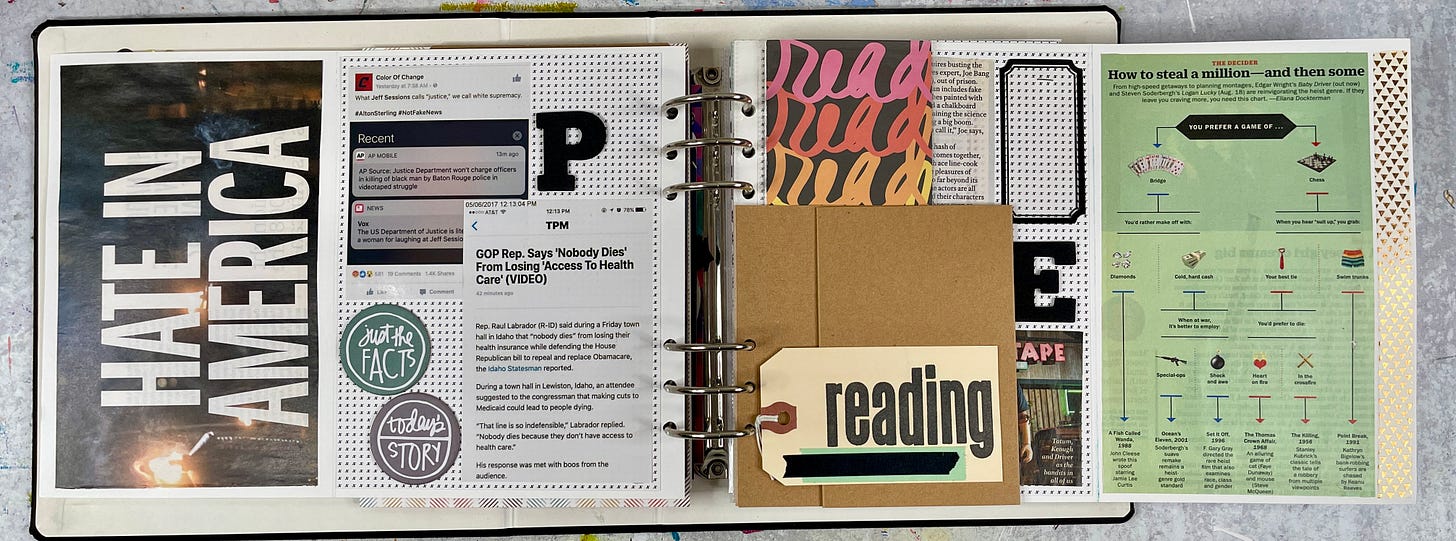
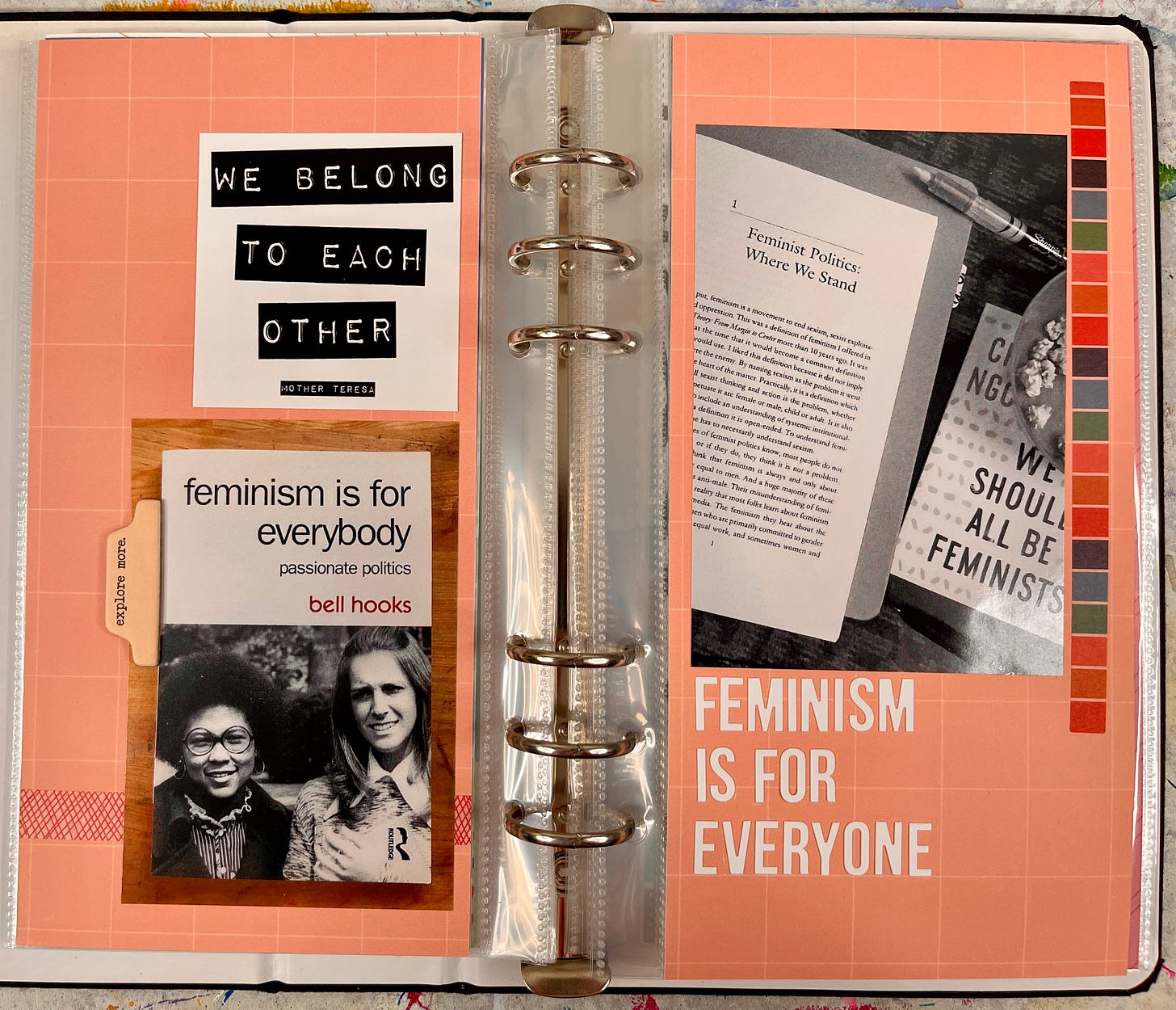

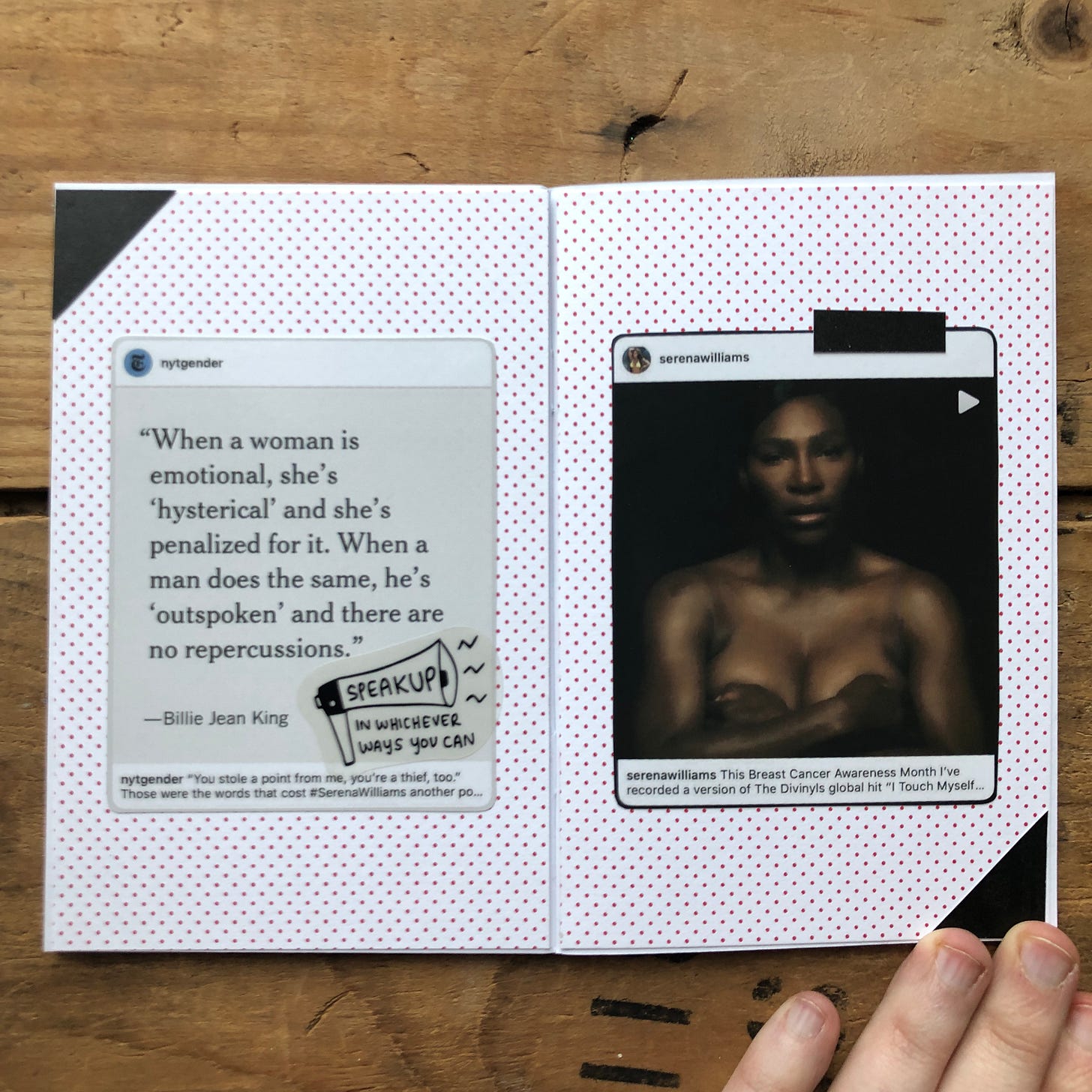
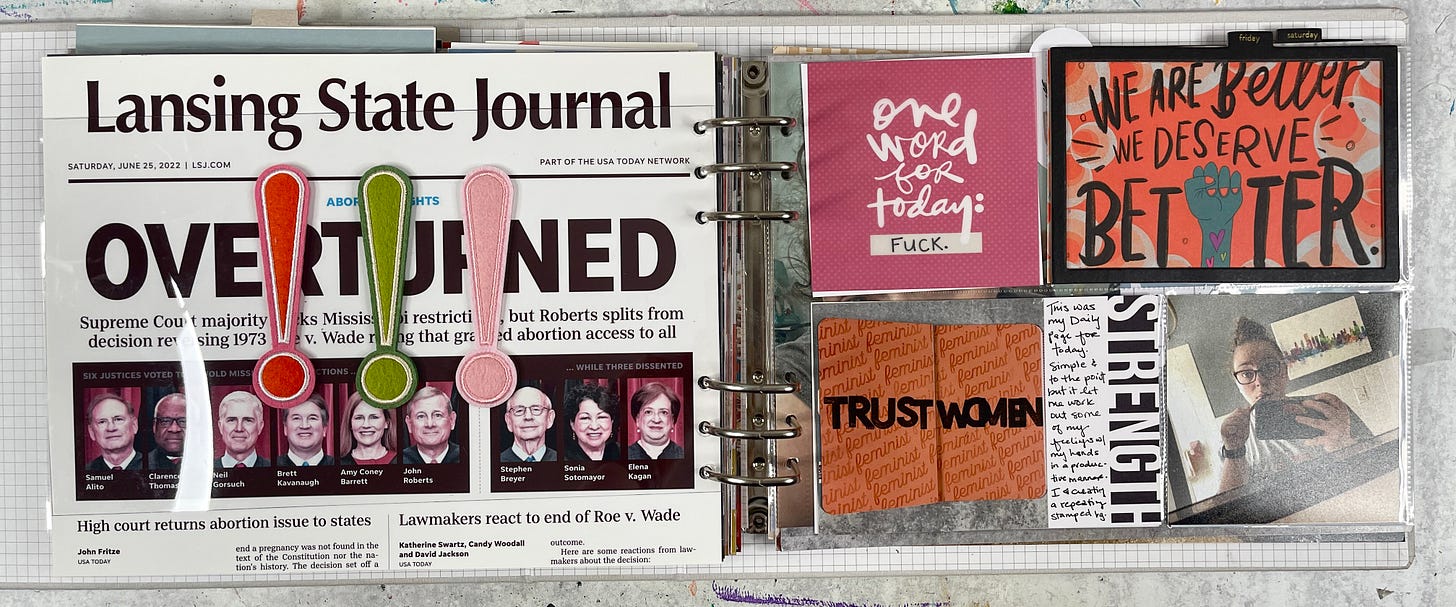
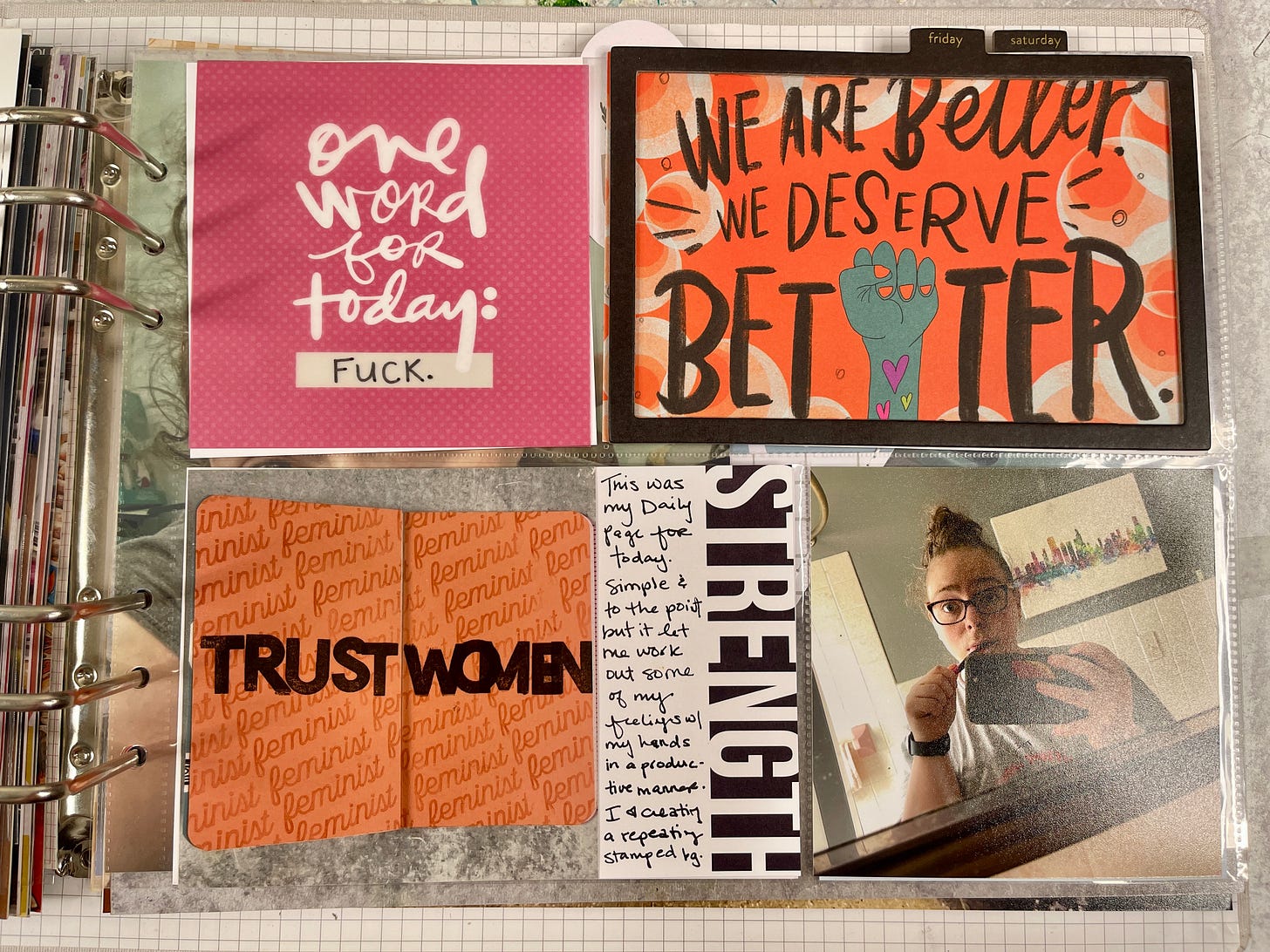
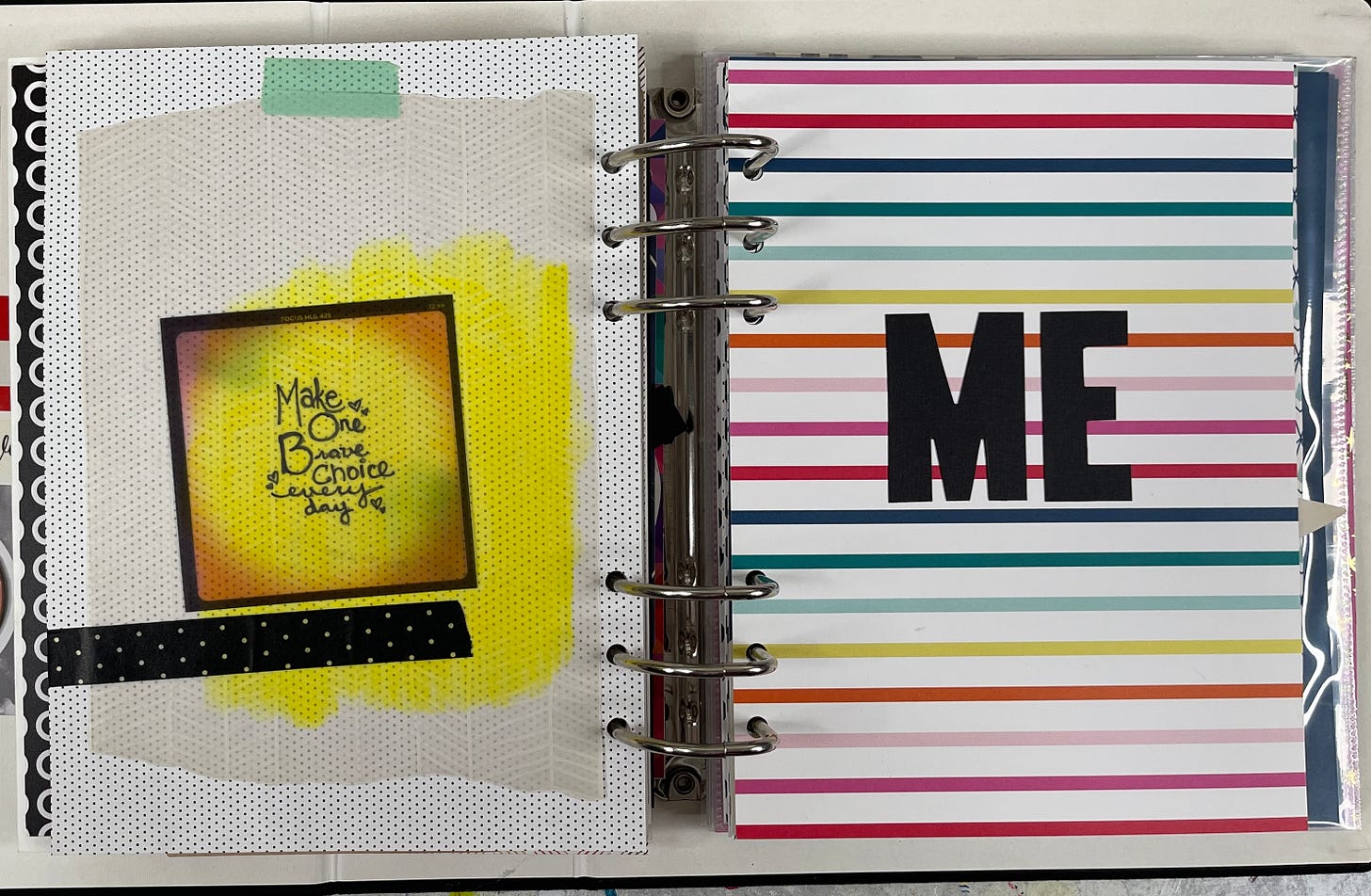
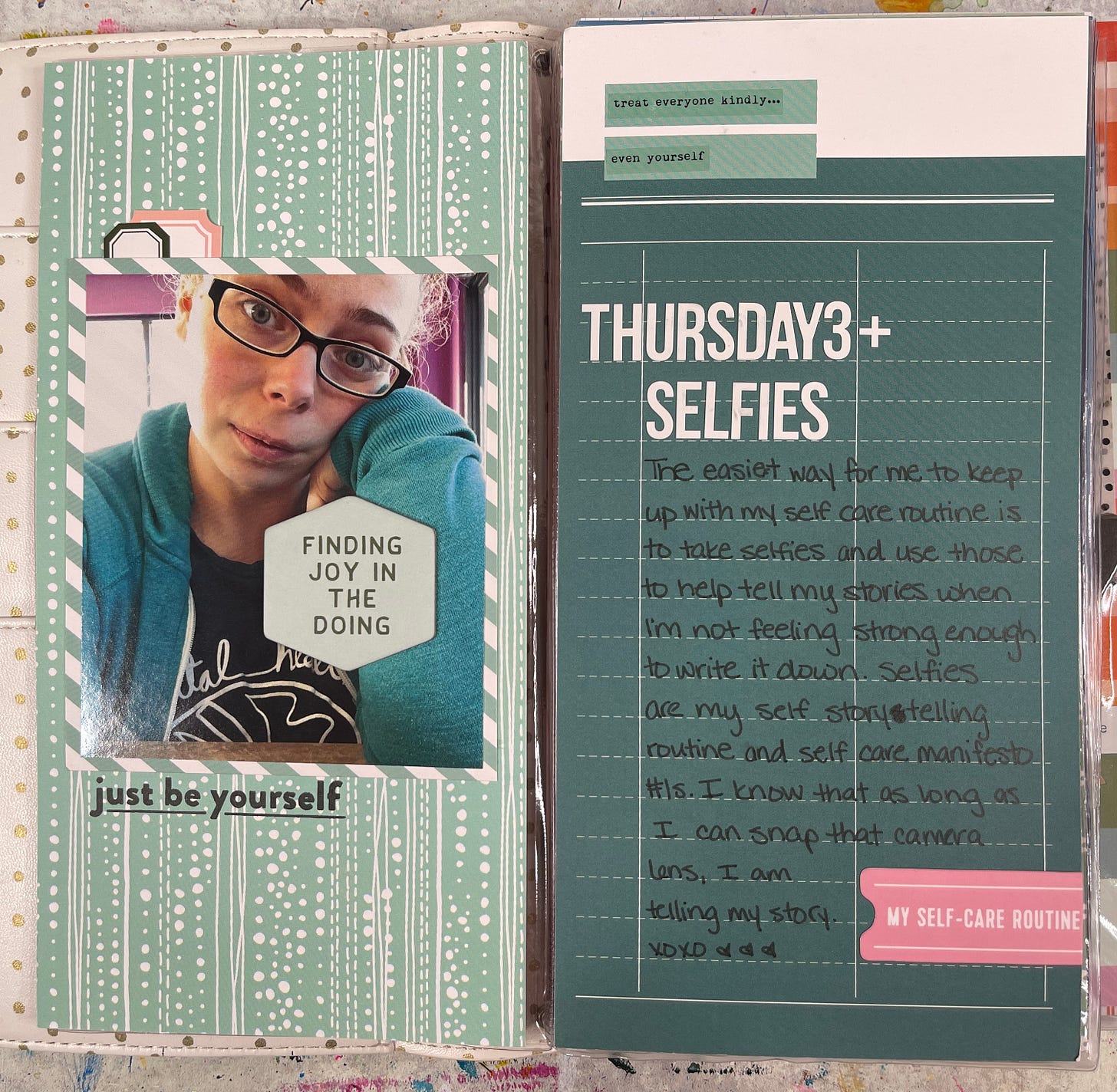





Damn. These words are everything...thank you for gifting them to us. 🥰😍❤️ Love you!
“ I document those things—not because they’re flashy, but because they’re mine.”
This. This, this, this. ❤️